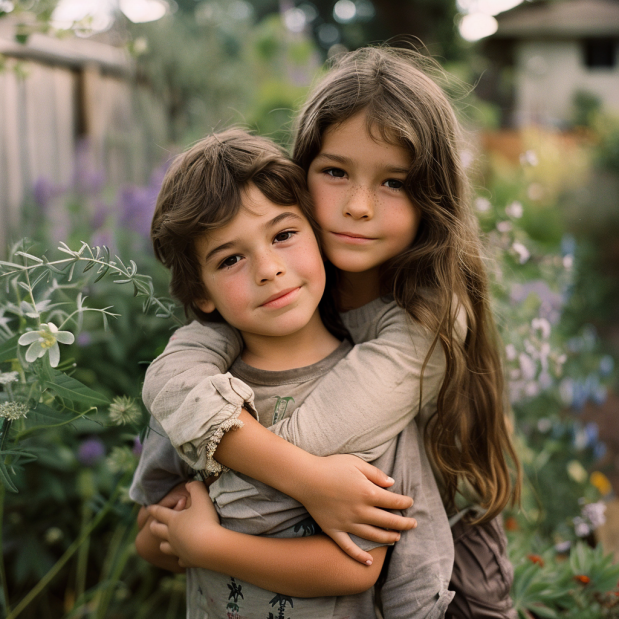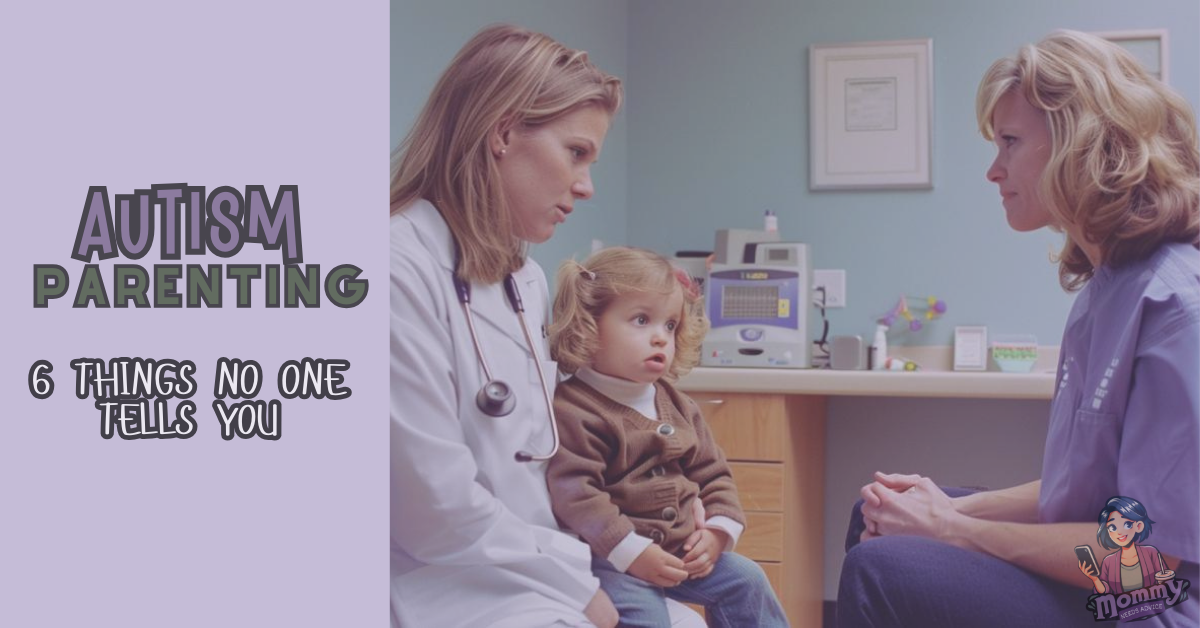Autism. It’s a scary word. I have an 11-year-old son on the spectrum, and I still probably wouldn’t know for sure how to answer if someone asked me what parenting an autistic child meant. My son was a little over two years old when his pediatrician referred him to be officially diagnosed as being on the spectrum.
It’s a grueling process that takes hours, with people asking lots of questions and testing what your child can and can’t do. Ultimately, his pediatrician’s suspicions were confirmed: our son was autistic.
Now, there were a lot of conflicting emotions we felt as parents at that moment. Furthermore, my husband and I couldn’t help but wonder if we did anything wrong. Did we make a mistake somewhere that caused this to happen? What kind of life and future would our son have? And, most importantly, could we handle this?
When the doctor enters the room to confirm the diagnosis, they hand you a hefty folder. It’s stuffed with paperwork, brochures, reading materials, and resources. He explained that the folder would help us understand the diagnosis. This folder would tell us what to expect. The folder would also tell us where to turn for help.
The doctor wasn’t wrong. There was a lot of helpful information in that folder. Now, 11 years later, I can tell you many things that were not in that helpful folder. Things no one told me. Things I wish I would have known.
If you are taking the first steps of this journey with your child, don’t panic mama, I’ve been where you are. Keep reading. Let me share with you what I wish someone would have told me about parenting an autistic child.
1. Sleeping Is A Constant Struggle
There is a correlation between autism and sleep struggles. It happens fast. My son can go days without sleeping and function just fine. Eventually, doctors or another parent will clue you into the fact that sleeping is a tremendous struggle for people on the spectrum. This obstacle often starts early on. You may go days without sleeping, and the doctors will tell you your child is not yet old enough for any medication that could help. This does get easier when they get older and medication becomes an option. The first few years, however, you learn to function on naps and coffee.
Reach out to loved ones for help if you reach a point where you absolutely need sleep. It takes a village to raise a child on the spectrum. Don’t be afraid to ask for help. Remember, you cannot be a strong, constant pillar of support for your child if you are neglecting your own needs, Mama. Self-care and checking in on your mental health is important.
Disclaimer: This article and the information in it is meant solely for educational and reference purposes — it is not medical advice. Please speak to your physician when it comes to the health and wellness of your child.
2. Autism Parents Make The Best Friends
In my experience, people tend to be afraid of children on the spectrum. Once you get that diagnosis, you fall into this world of people you didn’t know existed.
There is a beautiful fire in the parent of a child on the spectrum that I’d never seen before. These parents are strong and always ready to pull up their sleeves and fight for your child, too.Never underestimate the parent of a child on the spectrum. They almost always lack sleep and are just waiting to unleash on someone. Reach out to members of your new community. Social media groups are a great way to network with other families with autistic children. Your local doctor’s office and or community center are also great places to ask questions – they may be able to point you to parent support groups and resources in your local area. Having at least one friend who understands your unique struggles and will listen to you vent with an open mind and tons of encouragement is one of the most valuable resources you can have.
3. Autism Shows You Your Real Friends
When my son was diagnosed with autism, it was as if a spotlight was cast on the true nature of my relationships. Parenting an autistic child was quite isolating early on. I lost a lot of friends and family members when my son received his diagnosis. To this day, I still don’t understand why this happens because autism is far from a death sentence, and it’s certainly not contagious — but that doesn’t stop people from running when your relationship might require a bit more effort and understanding on their part.
Now, in my experience, my son’s autism was something some people were afraid of or refused to understand. I even had people who acted like it didn’t exist or believed he would grow out of it. This experience, painful as it was, really trimmed the fat out of my life.
So, How Did Our Relationships Change?
Autism has a way of revealing who your real friends are. It’s not just about the people who stay; it’s about how they choose to stay. The friends who stuck by us were incredible. They showed up, asked questions, and wanted to learn. Our real friends didn’t pretend to understand everything, but they tried. They admitted when they didn’t know something and apologized if they said or asked something offensive. That kind of humility and willingness to learn showed me their true character.
Those who remained became our pillars of support. Our tribe celebrated our small victories and were there during our tough times. They didn’t shy away from my son’s differences, they embraced them. They saw my son for who he is—a unique individual with his own strengths and challenges.
The friendships that lasted became deeper and more meaningful. These friends didn’t just tolerate our new reality; they became part of it. Those close to us learned how to interact with my son, understanding his needs and quirks. They were patient, compassionate, and non-judgmental. Most importantly, they treated him with the same respect and kindness they showed to any other child.
This journey gave me a new perspective on my loved ones. I realized that the people who genuinely cared about us were those who were willing to step out of their comfort zones and learn. They showed empathy and kindness in ways that I had never expected. These friendships, tested by the challenges of autism, proved incredibly resilient and precious.
Autism didn’t just show me who my real friends were; it showed me the strength and beauty of true friendship. The relationships that endured are now stronger than ever, built on a foundation of understanding, respect, and love. For that, I am profoundly grateful.

4. Siblings Are Beautiful And Challenging
Adding a sibling to the mix is a terrifying experience. I remember asking myself if I was making a huge mistake when I found out I was pregnant with my second child. Everything I thought I knew about parenting went out the window because my second child wasn’t on the spectrum. She was verbal. She was social. It’s so hard trying to find a balance between the two. I constantly worry that the situation isn’t fair to either child.
Apparently, I was wrong about every single fear I had. My daughter’s relationship with her brother is one of the most beautiful things I’ve ever witnessed. She has a natural empathy and understanding that many adults struggle to develop. And while it’s challenging to meet the needs of both children, it’s also incredibly rewarding to see them grow and learn from each other.
I also have discovered I’m raising a truly beautiful individual who won’t allow people who are different like her brother to feel alone and unloved.
5. Stereotypical Meals Won’t Work
Next, when it comes to meals, flexibility becomes your best friend. Autistic children often have sensory issues that make typical kid-friendly meals a no-go. You learn to adapt, creating meals that cater to your child’s specific tastes and textures. It’s an ongoing experiment, and while it can be frustrating, it’s also a journey of discovery and adaptation.
In all honesty, my best advice is just be prepared and ready to make a meal for your child on the spectrum and a meal for everyone else. Even with your best efforts, there are just things your child is not going to eat. Furthermore, it helps to accept that your child is not a picky eater.
6. Crying Will Happen
There will be tears—both yours and your child’s. Parenting an autistic child is a long journey. There will be moments of frustration, helplessness, and exhaustion. There will also be moments of joy, pride, and profound love. Embrace the tears as part of the journey, knowing that each challenge brings growth, and each tear teaches resilience.
It’s ok to cry, mama. Let it out and then pick yourself up and keep going. You’ll get through this.
Autism. It is scary. But it is also beautiful. My son’s diagnosis introduced me to a beautiful world I didn’t know existed. The most important thing I wish someone had told me when he was first diagnosed is simple: It will be ok and you can do this. This journey will be filled with unexpected joy and profound love. You are stronger than you think, and this world is more beautiful than you could ever imagine.
Is there anything you wish someone would have told you about parenting an autistic child? Let’s talk about it in the comments!






















